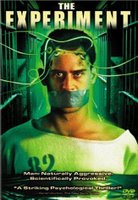my five cents on abortion
One of the most pithy summaries I've read of the debate over abortion was in the June 25, 2006 New Yorker article "Reversing Roe," by Cynthia Gorney. (It's not online, unfortunately.) She covers the internal debate in South Dakota, which recently passed an intentionally unconstitutional bill that bans all abortions, except in the case of preventing the woman's immenent death. This bill "distills the anti-abortion positions to its simplest, most logically coherent essence," Gorney writes.
This is because "the only form of abortion law that makes real internal sense, for a dedicated right-to-lifer, is one with no exceptions categories at all." (Exceptions categories, she explains, started during the decade before Roe v. Wade, when many states started loosening anti-abortion laws by allowing women to get abortions in certain circumstances, beyond saving the woman's life. These categories allowed abortion for rape or incest, deformed fetuses, or the woman's physical or mental health.)
Gorney continues:
This is because "the only form of abortion law that makes real internal sense, for a dedicated right-to-lifer, is one with no exceptions categories at all." (Exceptions categories, she explains, started during the decade before Roe v. Wade, when many states started loosening anti-abortion laws by allowing women to get abortions in certain circumstances, beyond saving the woman's life. These categories allowed abortion for rape or incest, deformed fetuses, or the woman's physical or mental health.)
Gorney continues:
If the premise [that a fetus is a full human being] is to remain intact, a person who professes to be pro-life but insists on a rape-and-incest exception (which covers most pro-life politicians in this country, including President Bush) is saying one of two things: either it is justifiable to kill children in some circumstances, or what grows in a woman's uterus is a child if the woman had sex voluntarily but not if she was forced into it.Now I suppose pro-life activists could say that this portrayal of abortion as a "morally complex act" involves no principled stand. But that's the problem with overly rigid stances: they rarely fit the world, so we can either try to wrap our minds and morals around the world as it is, or we can struggle to squeeze the world into a tight box.
Neither of those options is plausible, under most people's sense of logic and morality.... So here's the dilemma [for pro-life activists]: how prudent is it to push people who might otherwise be your allies—who might be at least partially helpful to your cause—to examine the inconsistency of their own position? You might win them over to the true-believer ranks: it's a child, so the law can't permit killing it unless that's the unfortunate consequence of trying to save its mother's life. Or you might alienate them so thoroughly that they end up in the enemy camp: abortion has to be legal at least for rape and incest, which means that it isn't a child, which means the foundational premise is wrong, which means abortion is not child-killing after all but, rather, a morally complex act that requires society to weigh one thing against another—the severity of the pregnant woman's distress, for exampe, versus developing human life. That is exactly the kind of weighing Justice Harry Blackmun engaged in when he wrote the majority opinion in Roe v. Wade.













0 Comments:
Post a Comment
<< Home